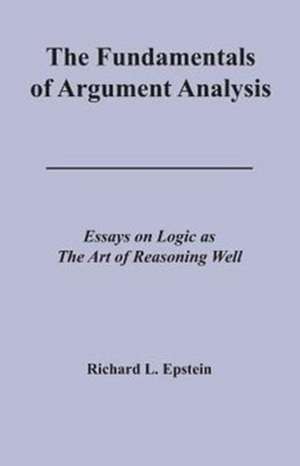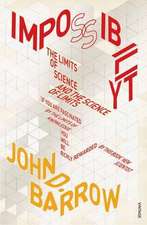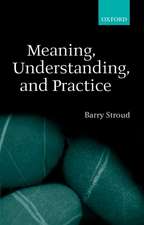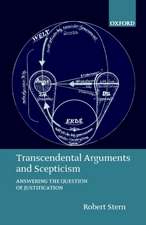The Fundamentals of Argument Analysis
Autor Richard L. Epsteinen Limba Engleză Paperback – 31 ian 2013
Preț: 130.65 lei
Nou
Puncte Express: 196
Preț estimativ în valută:
25.01€ • 27.17$ • 21.02£
25.01€ • 27.17$ • 21.02£
Carte tipărită la comandă
Livrare economică 21 aprilie-05 mai
Preluare comenzi: 021 569.72.76
Specificații
ISBN-13: 9781938421051
ISBN-10: 1938421051
Pagini: 230
Dimensiuni: 140 x 216 x 12 mm
Greutate: 0.27 kg
Editura: Advanced Reasoning Forum
ISBN-10: 1938421051
Pagini: 230
Dimensiuni: 140 x 216 x 12 mm
Greutate: 0.27 kg
Editura: Advanced Reasoning Forum
Descriere
Presenting the fundamentals of logic in a style accessible to both students and scholars, the text of each essay presents a story, the main line of development of the ideas, while the notes and appendices place the research within a larger scholarly context.
Notă biografică
Richard L. Epstein is the author of Computability (with Walter Carnielli), the series The Semantic Foundations of Logic (Propositional Logics, Predicate Logic, Classical Mathematical Logic), the series Logic as the Art of Reasoning Well, and this current series Logic, Language, and the World (An Introduction to Formal Logic, The Internal Structure of Predicates and Names). He is currently the Head of the Advanced Reasoning Forum.




















